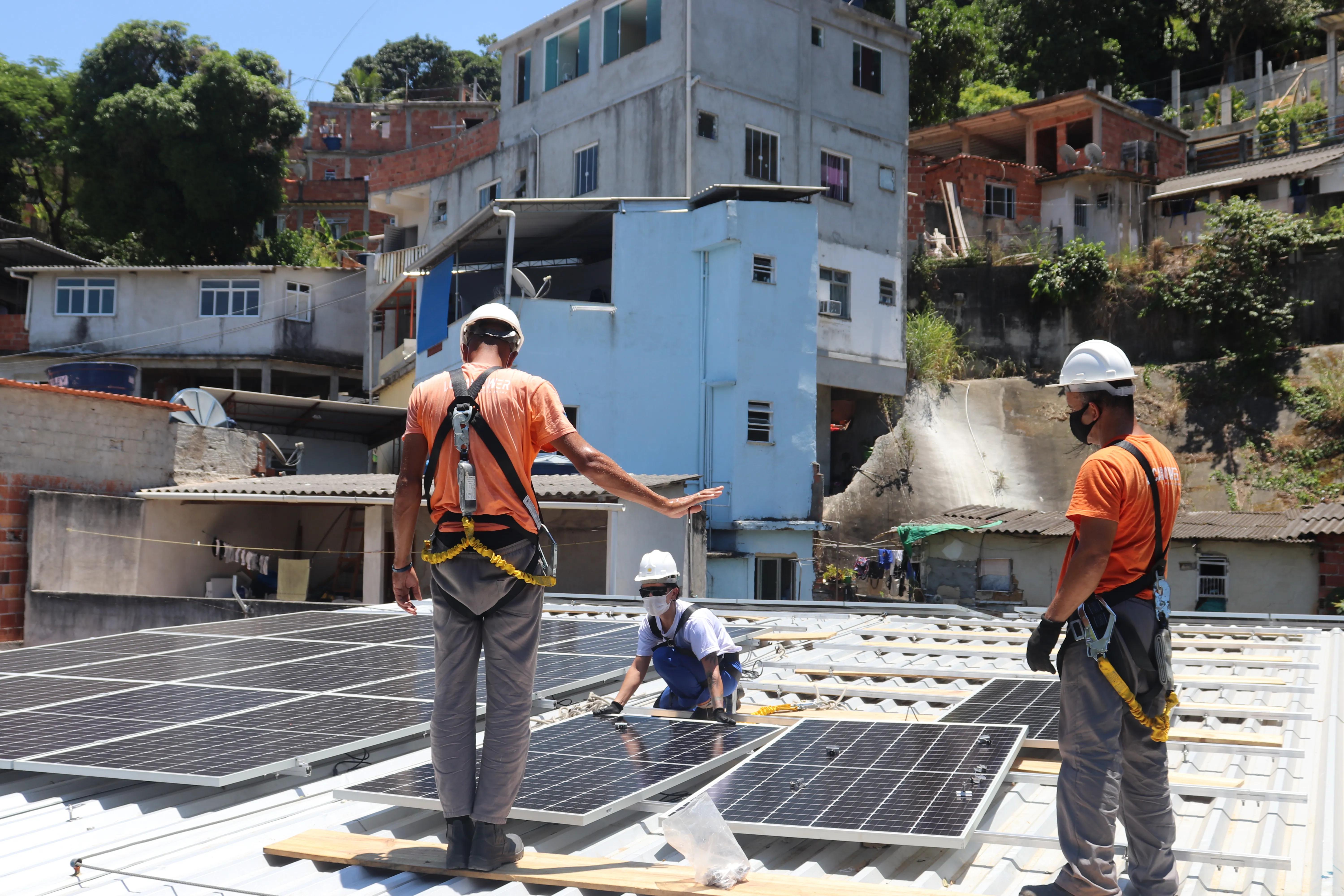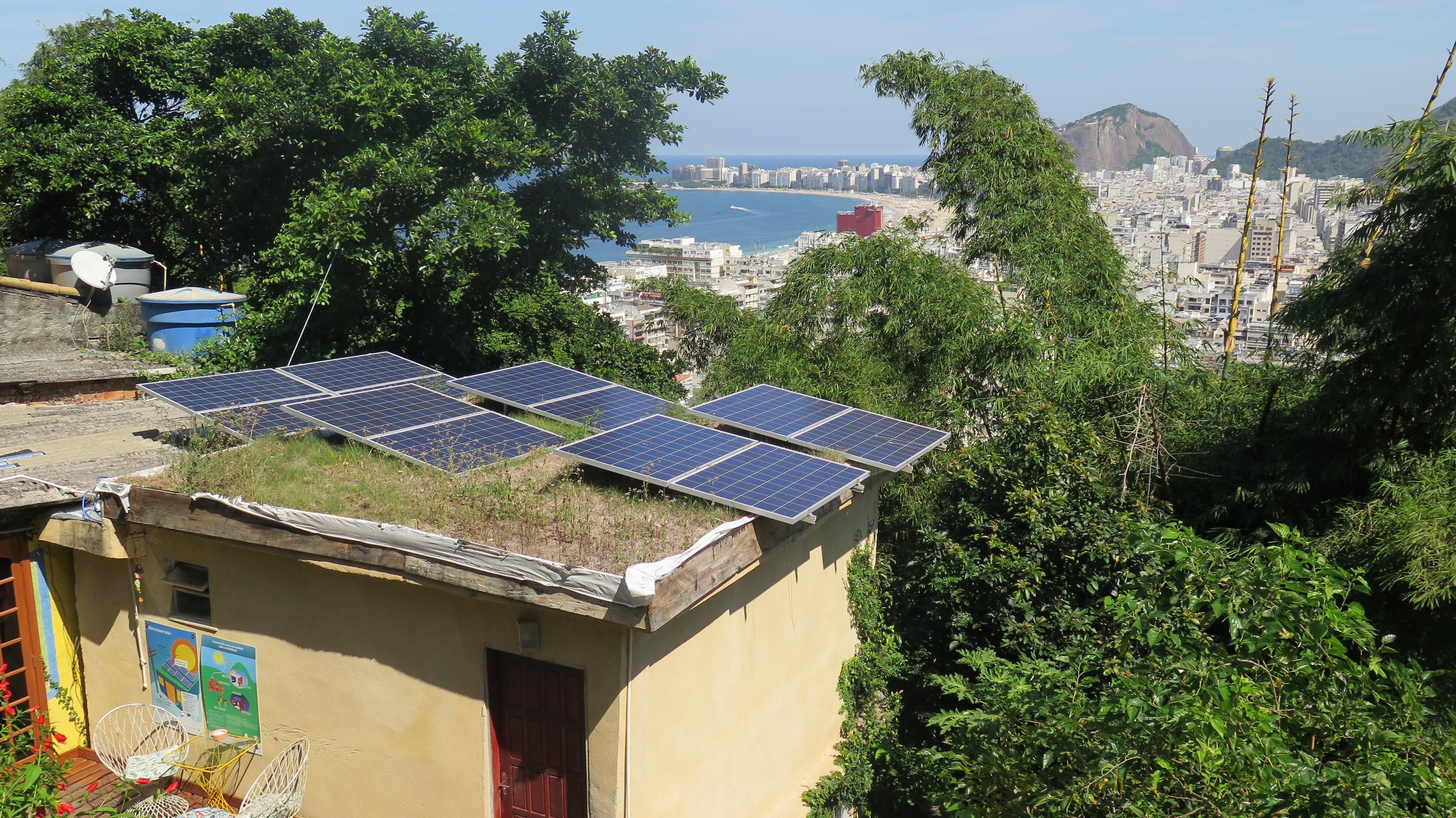
It was in the Babilônia favela, in Rio de Janeiro, that Revolusolar emerged in 2015, born from a collective desire to build sustainable solutions from within the community. The initiative grew alongside the territory and soon expanded to the neighboring Chapéu Mangueira. The first installations took place in local establishments, and by 2018, trained residents began working as solar installers, bringing this technology to community spaces such as the Tia Percilia School. The work gained strength with the creation of the Percília and Lúcio Renewable Energy Cooperative — the first solar energy cooperative in a Brazilian favela — solidifying Babilônia and Chapéu Mangueira as pioneering territories for popular solar energy in the country.
With solar panels installed at strategic community points — such as the sports court, the residents' association, and public schools — the cooperative began supplying clean and more affordable energy to dozens of local families. In 2023, new panels were added, expanding the number of beneficiaries. This project is a milestone for Rio de Janeiro and an inspiring model for advancing energy justice in favelas and underserved communities across Brazil.

-min.JPG)
-min.JPG)
Programs implemented
Sustainable Energy
- Installed Capacity (kWp): 85.3
- Estimated Annual Generation (MWh/year): 100
- Annual GHG emissions avoided (tons/year): 5.3
- Annual Energy Savings (BRL/year): 90,363
Professional Training
- Number of graduates: 23
Education and Culture
- Number of participants: 1,650
- Number of workshops: 66
Access to quality energy remains a challenge for many communities. Our most recent Socio-Energy Assessment reveals the reality faced by residents of Babilônia and Chapéu Mangueira, in Rio de Janeiro, highlighting difficulties, perceptions, and opportunities for a fairer and more sustainable energy transition.
Key findings:
✅ 40.4% reported frequent power fluctuations.
✅ 53.3% have lost home appliances due to grid failures.
✅ 98% are familiar with solar energy, and 45.2% would switch to it to reduce costs.
-min.JPG)




